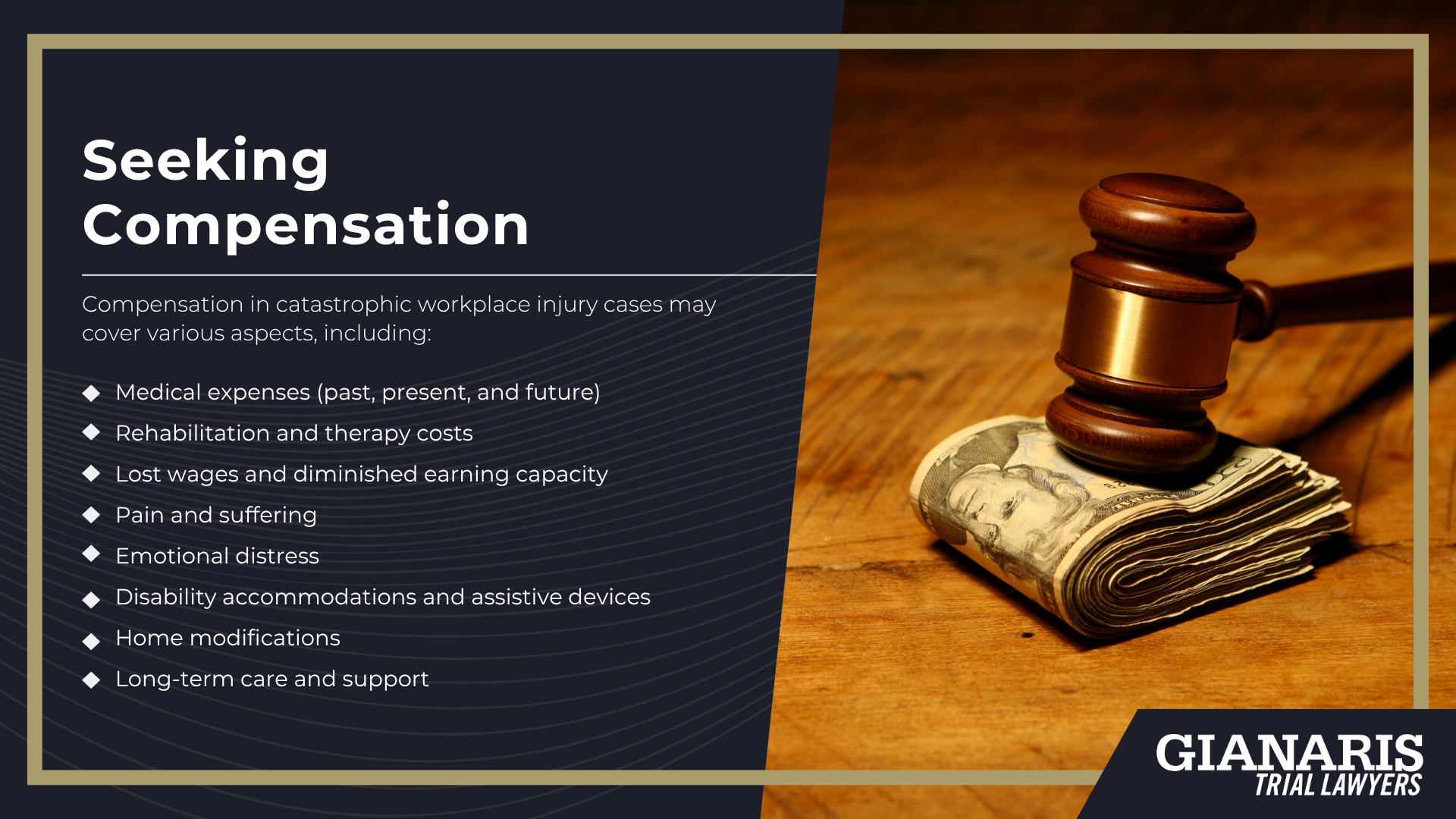Workplace accidents can result in catastrophic injuries that leave victims and their families facing immense physical, emotional, and financial challenges.
If you or a loved one has experienced a catastrophic injury in the workplace, it is crucial to understand your rights and legal options.

This content aims to provide valuable information and guidance for victims of catastrophic workplace injuries, empowering them to seek justice and fair compensation.
Understanding Catastrophic Injuries
Catastrophic workplace injuries refer to severe injuries that have a long-lasting impact on a person’s life.
These injuries often include spinal cord injuries, traumatic brain injuries, severe burns, loss of limbs, paralysis, and other life-altering conditions.
They require extensive medical treatment, ongoing rehabilitation, and may lead to permanent disability or reduced quality of life.
Pursuing a Workplace Injury Claim
When it comes to catastrophic workplace injuries, it is essential to navigate the legal process to secure compensation for the physical, emotional, and financial damages suffered.
Hiring an experienced personal injury attorney specializing in workplace accidents is crucial for building a strong case.
They will investigate the incident, gather evidence, consult with experts, and fight on your behalf to hold the responsible parties accountable.
Identifying Liability
Determining liability in workplace injury cases can be complex.
While workers’ compensation typically covers medical expenses and lost wages, it may not fully address the long-term financial impact of catastrophic injuries.
In some cases, there may be third-party liability, such as equipment manufacturers, contractors, or subcontractors, whose negligence contributed to the accident.
Your attorney will evaluate the circumstances surrounding your injury to identify all potentially liable parties.
Seeking Compensation

Compensation in catastrophic workplace injury cases may cover various aspects, including:
- Medical expenses (past, present, and future)
- Rehabilitation and therapy costs
- Lost wages and diminished earning capacity
- Pain and suffering
- Emotional distress
- Disability accommodations and assistive devices
- Home modifications
- Long-term care and support
Your attorney will work diligently to assess the full extent of your damages and pursue the maximum compensation you deserve.




